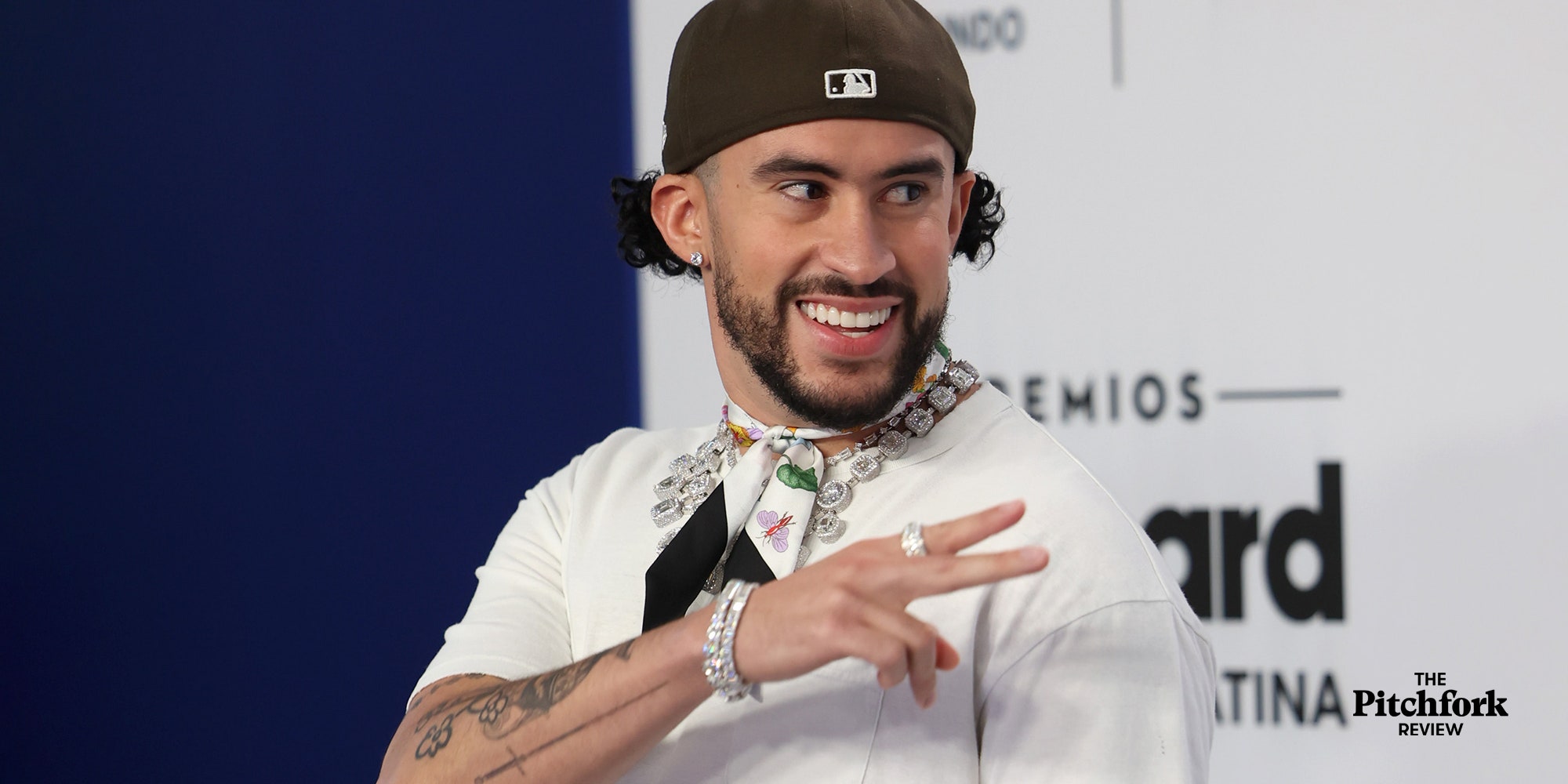Our weekly podcast includes in-depth analysis of the music we find extraordinary, exciting, and just plain terrible. This week Features Editor Ryan Dombal hosts Contributing Writer Julianne Escobedo Shepherd and Contributing Editor Isabelia Herrera to talk about the remarkable rise of Bad Bunny and why his new record, nadie sabe lo que va a pasar mañana, doesn’t quite live up to his own incredibly high standards. We also put the spotlight on three queer femmes—Young Miko, RaiNao, and Villano Antillano—who are putting their own stamp on Puetro Rican rap and reggaeton.
Listen to this week’s episode and read an excerpt from it below. Follow The Pitchfork Review here.
Ryan Dombal: Isabelia, you reviewed this new Bad Bunny album for Pitchfork and gave it a 7.4, which is a respectable score but also a whole point less than the score for his last one, Un Verano Sin Ti. What is your overall take?
Isabelia Herrera: The score speaks volumes. This is him returning to his trap roots. He starts off the album with this very long intro, talking about his career up until this point and explaining that this album is for the real fans, the ones who know he started out as a trap artist and is not just this pop-reggaeton star. And I respect that. But the album is also an hour and 21 minutes long.
Dombal: That’s a lot of minutes.
Herrera: It is. And I personally feel that it can get very repetitive, just returning to the trap sound over and over and over. It’s a very streaming-era album, where it can feel like the whole point is to maximize streaming. But it’s also a little disappointing thematically, because he’s returning to the same topics. He loves to talk about sex and he loves to flex, which is very fun, but he doesn’t do it with the same excitement and talent and skill that he has done in the past.
Dombal: I have to add that he is a little bit ahead of us as far as people criticizing him in the podcast format, because on the song “Monaco,” which is one of the better tracks, he’s talking about haters and says something like, “You’re not rappers anymore, now you’re podcasters.”
Herrera: And on the intro, he’s like, “Oh, lots of podcasts, lots of babosos,” which is like “dumbasses,” basically.
Dombal: So Bad Bunny hating podcasts is a major theme on this record! [laughs] And as a podcaster, I can’t help but feel personally affronted.
Julianne Escobedo Shepherd: So this is your answer track.
Dombal: Yeah, exactly.
Herrera: Bad Bunny, you have 24 hours to respond!








